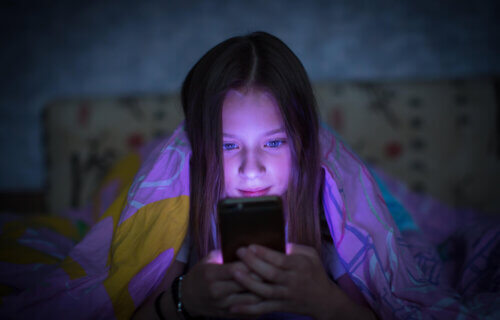GLASGOW, Scotland — A new study highlights a concerning link between adolescents frequently using social media and risky decision-making that could put their lives in danger. With millions of young people scrolling through Instagram, Facebook, TikTok and other platforms on a daily basis, the effects of these platforms are far-reaching.
Social media, a vibrant mix of content sharing, social networking, and blogging, has become a cornerstone of modern communication, especially among teenagers. It’s not just about staying connected; it offers a sense of freedom and belonging. The World Health Organization even recognizes its power in promoting health, noting its role in fostering healthy lifestyles, accessibility to health information, and emotional support.
However, it’s not all positive. Researchers from the University of Glasgow found a strong association between regular social media use and various risky health behaviors among young children and teens. These include increased underage drinking, drug use, and smoking, as well as antisocial behavior, such as unsafe sexual activity and gambling.
But how does this happen? The study points to several factors:
- Peer Pressure Amplified: Social media can intensify peer pressure, pushing teens towards risky behaviors.
- The Displacement of Physical Interaction: Excessive screen time might be replacing face-to-face interactions, leading to physical inactivity.
- Influence of Online Content: Both ads and user posts often glamorize unhealthy practices like excessive drinking or poor diet choices.
- Long-Term Impact: Poor health choices made in adolescence can set a pattern for life, leading to issues like substance dependency, depression, or chronic health problems.
The study, which analyzed data from 1.4 million adolescents between the ages of 10 and 19 from 1997 to 2022, found that exposure to social media content promoting risky activities, such as alcohol advertisements, showed the most substantial evidence of harm. This was particularly evident in the cases of alcohol consumption and unhealthy eating habits.
Key findings revealed that spending a minimum of two hours daily on social media doubled the likelihood of alcohol consumption compared to those who used it for less than two hours. Published in The BMJ, the study also highlighted that frequent or daily social media usage increased the probability of alcohol consumption by 48 percent, drug use by 28 percent, and tobacco use by 85 percent, compared to those who used social media infrequently or not on a daily basis.

Additionally, regular social media engagement was linked to a 77-percent rise in risky sexual behaviors, such as sexting, transactional sex, and inconsistent condom use, as well as a 73-percent increase in antisocial activities like bullying, physical assault, and aggressive or delinquent behavior. The study also noted that frequent social media users were almost three times more likely to engage in gambling compared to their peers who used social media infrequently or not every day.
“Experimental and risk-taking behaviors are an inherent part of adolescence,” the study authors write in a media release. “However, as safeguards for a digital world are still evolving, precaution across academic, governmental, health and educational sectors may be warranted before the risks of adolescents’ use of social media is fully understood.”
The study underlines the urgent need for more targeted research, particularly in low and middle-income countries. It also calls for a multi-pronged approach to safeguarding young people online, including better digital literacy education and more robust online safety policies.
You might also be interested in:
- Chimpanzees more patient than teens? Both are risk takers — but human kids are more impulsive
- Pre-teens addicted to social media and digital devices highly likely to develop a behavioral disorder
- Obsessed with social media? Breaking this addiction may also reverse symptoms of depression
South West News Service writer Isobel Williams contributed to this report.

